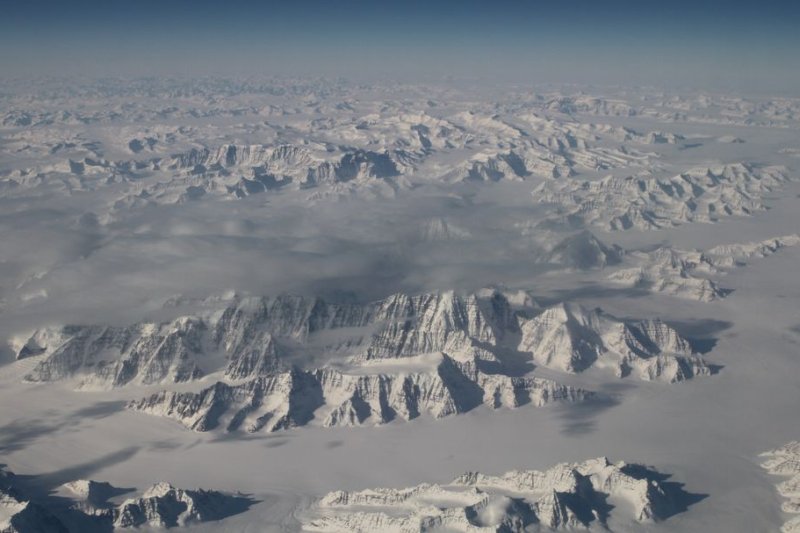New research suggests current climate models are underestimating future warming and melting in Greenland. Photo by NASA/UPI |
License Photo
Oct. 16 (UPI) -- Climate models failed to predict air pressure changes measured in the atmosphere above Greenland over the last few decades. According to a new study, the failure undermines the reliability of climate models for regional predictions in the North Atlantic.
Over the last few decades, Greenland has experienced an increase in summertime air pressure, a phenomenon called "Greenland blocking." Climate models, however, predicted a slight decrease in air pressure during the same time period.
The mismatch between real and simulated data suggests regional climate projections in the North Atlantic could be inaccurate.
"These differences between the estimates from the current climate models and observations suggests that the models cannot accurately represent recent conditions or predict future changes in Greenland climate," Edward Hanna, a climate scientist at the University of Lincoln in England, said in a news release.
If air pressure continues to increase across Greenland, climate scientists think the British Isles are likely to experience an increase in summertime precipitation -- a likelihood missed by current climate models.
Scientists think North Atlantic climate predictions are underestimating the region's accelerate warming, as well as the impacts of Greenland's melting ice sheet on global sea level rise.
"While there is natural variability in the climate system, we think that the recent rapid warming over Greenland since the early 1990s is not being fully simulated by the models, and that this misrepresentation could mean that future changes in atmospheric circulation and the jet stream over the wider North Atlantic region may not be properly simulated," Hanna said.
Researchers published their analysis of North Atlantic climate predictions this week in the journal The Cryosphere.
"Until now, no-one has systematically examined the projections to see how they represent the last few decades and future changes -- up to the year 2100 -- from a Greenland regional perspective," Hanna said. "Previous work reported a tendency for global warming to result in a slightly more active jet stream in the atmosphere over the North Atlantic by 2100 but our results indicate we may actually see a somewhat weaker jet, at least in summer."















